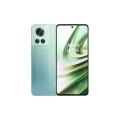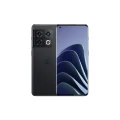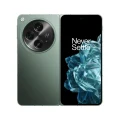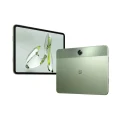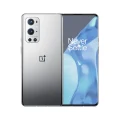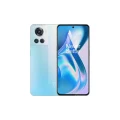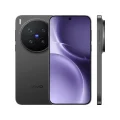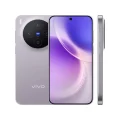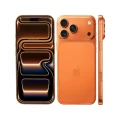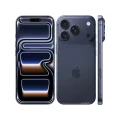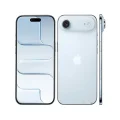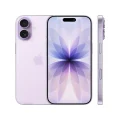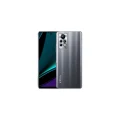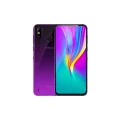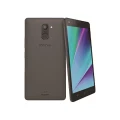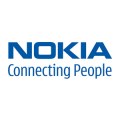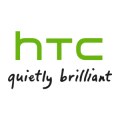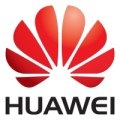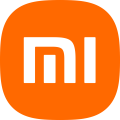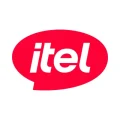- Home
- All Products
- OnePlus
- OnePlus 13
OnePlus 13


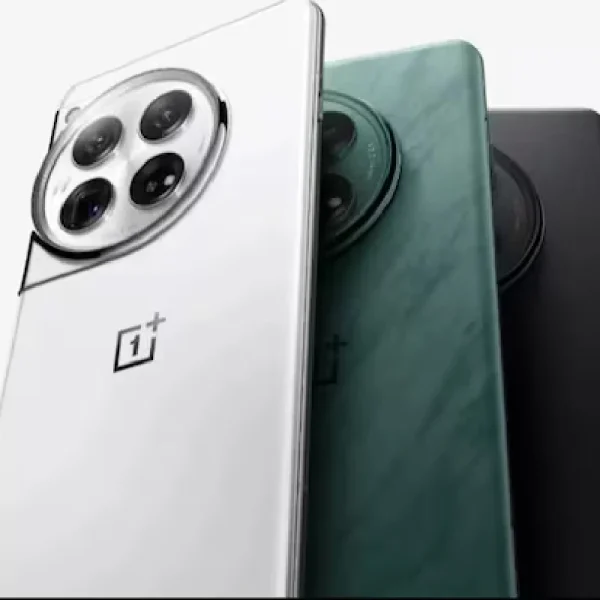


-
Battery: Si/C Li-Ion 6000 mAh
-
RAM: 12GB, 12GB, 16GB, 24GB
-
Storage: 256GB, 512GB, 512GB, 1TB
-
Display: LTPO 4.1 AMOLED, 6.82 inches
-
Camera: Rear 50 MP+50 MPP+50 MP, and Front 32 MP
-
OS: Android 15, up to 4 major Android upgrades, OxygenOS 15 (International), ColorOS 15 (China)
Full Specifications
Price
| Unofficial | 117999 BDT 12GB/256GB Approx. |
General
| Model | OnePlus 13 |
| Announced | 2024, October 31 |
| Released | 2024, November 01 |
| Status | Available |
Design
| Dimensions | 162.9 x 76.5 x 8.5 mm or 8.9 mm |
| Weight | 210 g or 213 g (7.41 oz) |
| SIM SIM (Subscriber Identity Module) is a small card that contains mobile network subscriber's account information. This allows the phone using the card to attach to a mobile network. The SIM card is most commonly associated with GSM and UMTS mobile networks. Moving a SIM card from one phone to another allows a subscriber to switch mobile phones without having to contact their mobile network carrier. SIM cards can also be used by a phone to store limited amounts of data, such as phone numbers and text messages. |
Nano-SIM + Nano-SIM + eSIM (max 2 at a time) Nano-SIM + Nano-SIM |
| Colors |
Black Eclipse, Arctic Dawn, Midnight Ocean |
Display Specification
| Display Type Display Technology => A number of display technologies and types used in mobile phones => TFT (Thin Film Transistor), IPS (In-Place Switching), OLED (Organic Light Emitting Diode), AMOLED (Active-Matrix Organic Light-Emitting Diode), Super AMOLED (an even advanced version of AMOLED), Resistive Touchscreen (Resistive touchscreens contain two layer of conductive material with a very small gap between them which acts as a resistance), Capacitive Touchsceen (Capacitive touchscreen technology consists of a layer of glass coated with a transparent conductor) | LTPO 4.1 AMOLED |
| Size | 6.82 inches, 113.0 cm2 |
| Resolution | 1440 x 3168 pixels |
| Refresh Rate | 120Hz |
| Pixel Density Pixel Density (PPI) is refers to the concentration of pixels on a particular display, measured in pixels per inch (ppi). Pixel density is calculated by dividing the diagonal pixel resolution of a display by its diagonal size, higher pixel density better display quality. | 510 ppi density |
| Display Protection Display Protection => Gorilla Glass is a special alkali-aluminosilicate glass shield with exceptional damage resistance that helps protect mobile displays from scratches, drops, and bumps of everyday use, It is always better to go for a smartphone with Gorilla Glass for that added protection and peace of mind. | Ceramic Guard glass, Mohs level 4 |
| Features |
1B colors, 2160Hz PWM, Dolby Vision, HDR10+, HDR Vivid, 800 nits (typ), 1600 nits (HBM), 4500 nits (peak) 90.7% screen-to-body ratio |
Platform
| Operating System OS => Every computer system run on a base software called Operating System (OS). Operating System controls all basic operations of the computer (such as smartphone, PDAs, tablet computers and other handheld devices). The Operating System allows the user to install and run third party applications (apps), apps are used to add new functionality to the device. | Android 15, up to 4 major Android upgrades, OxygenOS 15 (International), ColorOS 15 (China) |
| Chipset Chipset is a group of integrated circuits designed to perform one or a more dedicated functions, often with real time computing constraints, Popular smartphones are equipped with more advanced embedded chipsets that can do many different tasks depending on their programming. | Qualcomm SM8750-AB Snapdragon 8 Elite (3 nm) |
| CPU CPU (Central Processing Unit) mostly known as processors, CPU processes instructions in order to carry out certain functions that make your device operate properly. Processors are often described as the brain of computers, smartphones and tablets, Smartphones and tablets rely on processors to carry out their every task, Processors are an incredibly important factor in selecting any type of computing device, including your smartphone. | Octa-core (2x4.32 GHz Oryon V2 Phoenix L + 6x3.53 GHz Oryon V2 Phoenix M) |
| GPU GPU (Graphics Processing Unit) is a single-chip processor designed to rapidly manipulate and alter memory to accelerate the creation of images in a frame buffer intended for output to a display, This includes things such as lighting effects, object transformations, and 3D motion. | Adreno 830 |
Main Camera
| Camera Setup | Triple |
| Resolution |
50 MP, f/1.6, 23mm (wide), 1/1.43", 1.12µm, multi-directional PDAF, OIS 50 MP, f/2.6, 73mm (periscope telephoto), 1/1.95", 0.8µm, 3x optical zoom, PDAF, OIS 50 MP, f/2.0, 15mm, 120˚ (ultrawide), 1/2.75", 0.64µm, PDAF |
| Features |
Laser focus, Hasselblad Color Calibration, color spectrum sensor, Dual-LED flash, HDR, panorama |
| Video | 8K@30fps, 4K@30/60fps, 1080p@30/60/240/480fps, Auto HDR, gyro-EIS, Dolby Vision |
Selfie Camera
| Camera Setup | Single |
| Resolution |
32 MP, f/2.4, 21mm (wide), 1/2.74", 0.8µm |
| Video | 4K@30/60fps, 1080p@30/60fps, gyro-EIS |
| Features |
HDR, panorama |
Network & Connectivity
| Technology | GSM / HSPA / LTE / 5G |
| Speed | HSPA, LTE (CA), 5G |
| Wi-fi Wi-Fi is a popular wireless networking technology using radio waves to provide high-speed network connections that allows devices to communicate without cords or cables, Wi-Fi is increasingly becoming the preferred mode of internet connectivity all over the world. | Wi-Fi 802.11 a/b/g/n/ac/6/7, dual or tri-band, Wi-Fi Direct |
| Bluetooth Bluetooth is a wireless communications technology for exchanging data between mobile phones, headsets, computers and other network devices over short distances without wires, Bluetooth technology was primarily designed to support simple wireless networking of personal consumer devices. | 5.4, A2DP, LE, aptX HD, LHDC 5 |
| NFC NFC (Near field communication) is a set of standards for smartphones and similar devices to establish peer-to-peer radio communications with each other by touching them together or bringing them into proximity, usually no more than a few inches. | Yes |
| Positioning |
GPS (L1+L5), GLONASS (G1), BDS (B1I+B1c+B2a), GALILEO (E1+E5a), QZSS (L1+L5), NavIC |
| FM Radio | No |
| Infrared port | Yes |
| USB | USB Type-C 3.2, OTG |
| 2G Network |
GSM 850 / 900 / 1800 / 1900 |
| 3G Network |
HSDPA 800 / 850 / 900 / 1700(AWS) / 1900 / 2100 - International HSDPA 850 / 900 / 1900 / 2100 - India |
| 4G Network |
1, 2, 3, 4, 5, 7, 8, 12, 13, 17, 18, 19, 20, 25, 26, 28, 30, 32, 38, 39, 40, 41, 48, 66, 71 - International 1, 3, 4, 5, 7, 8, 18, 19, 20, 26, 28, 34, 38, 39, 40, 41, 42, 48, 66 - China, India |
| 5G Network |
1, 2, 3, 5, 7, 8, 12, 20, 25, 28, 30, 38, 40, 41, 48, 66, 71, 75, 77, 78 SA/NSA/Sub6 - International 1, 3, 5, 7, 8, 20, 28, 38, 40, 41, 48, 66, 77, 78 SA/NSA - China, India |
Battery
| Battery Type Battery Type => Cell phones run on various kinds of batteries depending on the manufacturer, phone size or shape and features. There are basically four types of cell phone batteries => Lithium Polymer, Lithium Ion, Nickel Metal Hydride and Nickel Cadmium. | Li-Ion (Lithium Ion) |
| Capacity Battery Capacity is a measure (typically in Amp-hr) of the charge stored by the battery, and is determined by the mass of active material contained in the battery. The battery capacity represents the maximum amount of energy that can be extracted from the battery under certain conditions. | 6000 mAh |
| Removable | No |
| Charging |
100W wired, PD, QC, 50% in 13 min, 100% in 36 min 50W wireless 10W reverse wireless 5W reverse wired |
| Wireless Charging Wireless Charging (Inductive Charging) uses an electromagnetic field to transfer energy between two objects. This is usually done with a charging station. Energy is sent through an inductive coupling to an electrical device, which can then use that energy to charge batteries or run the device. | Yes |
Multimedia
| Loudspeaker | Yes, with stereo speakers |
| Audio Jack | No |
| Audio Features |
24-bit/192kHz Hi-Res audio |
Storage
| Card Slot Memory Card Slot is a special slot for inserting a memory card. Memory cards allow you to expand the phone's built-in memory, A memory card (sometimes called a flash memory card or a storage card) is a small storage medium used to store data such as text, pictures, audio, and video, for use on small, portable or remote computing devices such as mobile phones, mp3 players, digital cameras. | No |
| Internal Storage Internal Storage is a data storage space (flash memory) mostly used in smartphones, tablets and other electronic devices where operating system, apps, music, photos, videos, files and other user data Is stored. |
256GB 12GB RAM, 512GB 12GB RAM, 512GB 16GB RAM, 1TB 24GB RAM UFS 4.0 |
Sensors
| Fingerprint | Yes (under display, optical) |
| Other Sensors | accelerometer, gyro, proximity, compass, barometer |
PROS
- Class-leading battery capacity and very fast charging.
- Top-tier performance for gaming and productivity.
- Bright, high-res adaptive LTPO display.
- Versatile camera system with periscope telephoto and 8K video.
- Solid IP68/IP69 durability and premium materials.
CONS
- No microSD expansion.
- Large size and weight may not suit pocket users.
- Some regions ship ColorOS instead of OxygenOS.
- No 3.5mm headphone jack.
About the OnePlus 13
The OnePlus 13 is a flagship Android smartphone that blends extreme performance with long-lasting battery life and a premium build. It packs Qualcomm’s Snapdragon 8 Elite, up to 24GB RAM, and UFS 4.0 storage (256GB–1TB) for smooth multitasking and lightning-fast app loads. Its 6.82-inch LTPO 4.1 AMOLED display delivers a sharp 1440×3168 resolution, adaptive 120Hz refresh, and very high peak brightness for clear outdoor visibility.
Photography is versatile: a triple 50MP camera array (wide, periscope 3× tele, and ultrawide) with OIS, Hasselblad tuning, and 8K video capture. The stainless aluminum frame with Ceramic Guard front, optional glass or eco-leather back, and IP68/69 rating make it both stylish and durable.
Battery is a standout — a 6000mAh cell with 100W wired charging (50% in ~13 minutes) plus 50W wireless and reverse wireless capabilities, delivering days of mixed use and fast top-ups. Connectivity and extras include Wi-Fi 7, Bluetooth 5.4, ultrasonic in-display fingerprint, comprehensive GNSS, NFC, and an IR blaster. Running Android 15 with up to four major OS upgrades, OxygenOS/ColorOS offers a clean, customizable experience.
Overall, the OnePlus 13 targets users who want flagship speed, robust battery life, and advanced camera hardware without flagship price premiums. Ideal choice for power users.
Main Key Features
- Display: 6.82″ LTPO 4.1 AMOLED, 1440×3168, 120Hz, Dolby Vision, HDR10+.
- Processor: Qualcomm Snapdragon 8 Elite (3 nm) + Adreno 830 GPU.
- Memory & Storage: Up to 24GB RAM, UFS 4.0, 256GB / 512GB / 1TB (no card slot).
- Cameras: Triple 50MP (wide + periscope 3× tele + ultrawide), OIS, 8K video.
- Battery & Charging: 6000mAh, 100W wired (50% ~13 min), 50W wireless, reverse wireless.
- Build & Durability: Ceramic Guard front, glass or eco-leather back, aluminum frame, IP68/IP69.
- Software: Android 15, OxygenOS 15 (Intl) / ColorOS 15 (China), up to 4 major upgrades.
- Extras: Wi-Fi 7, Bluetooth 5.4, NFC, ultrasonic under-display fingerprint, IR blaster.
Why choose this phone?
Choose the OnePlus 13 if you want flagship raw power, enormous battery life, and rapid charging in one package, plus a flexible camera system for everyday and telephoto shots. It’s aimed at power users and creators who value uptime, speed, and a bright, high-resolution screen without paying ultra-premium flagship prices.
Opinion
OnePlus 13 strikes a strong balance: it upgrades core areas (chipset, battery, camera) while keeping software polished. For buyers seeking sustained performance, multi-day endurance, and fast charging, it’s a compelling flagship. If you prefer compact phones or expandable storage, consider alternatives.
See Another Model:
FAQs about OnePlus 13
Q: When was the OnePlus 13 released?
A: Announced Oct 31, 2024; released Nov 1, 2024.
Q: How big is the battery, and how fast does it charge?
A: 6000mAh battery; 100W wired (≈50% in ~13 minutes), 50W wireless, reverse wireless supported.
Q: Does it support expandable storage?
A: No — storage is fixed (256GB–1TB).
Q: What OS and update promise?
A: Ships with Android 15 and offers up to 4 major Android upgrades.
Q: Which camera features stand out?
A: Triple 50MP setup with periscope 3× tele, OIS, Hasselblad tuning, and 8K video.
Q: Is the OnePlus 13 water-resistant?
A: Yes — IP68/IP69 rated (dust tight and water resistant).
Give Your Review
Disclaimer Note
You can write your own disclaimer from APS Settings -> General -> Disclaimer Note.
